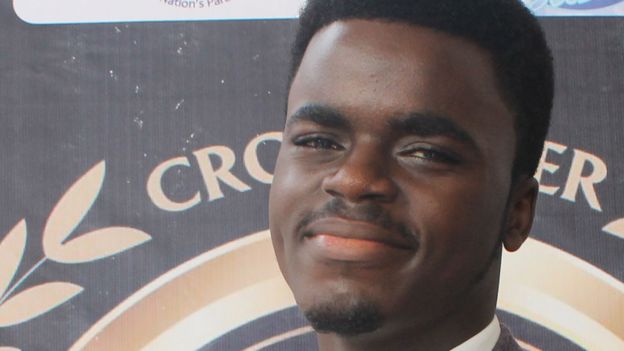In our series of letters from African journalists, novelist and writer Adaobi Tricia Nwaubani looks at how a teenager is transforming the lives of a city's street children.
James Okina is quite open about his tearaway teenage days: Shoplifting; stealing from classmates; bunking off.
"I was," he freely admits, "mixing with the wrong crowd."
It is a shockingly candid confession - especially when you know that Okina, still just a teenager, is marking his third year heading a charity helping the scores of children who live on the streets of Calabar, capital of Cross River State, in southern Nigeria.
It is a transformation he credits two people with: Firstly, a cousin, and secondly, a shabbily-clothed 13-year-old he met at a football match the year he finished secondary school.
'I had to do more'
The boy's name was Frederick and he was one of hundreds of children trying to survive on their own in Calabar.
Many come from the nearby camps which house people who fled their homes after Nigeria ceded their oil-rich land in Bakassi to neighbouring Cameroon, following a ruling by the International Court of Justice.
Others have been labelled witches, and have been abandoned by their families - a common phenomenon in nearby Akwa Ibom state.
But Frederick did, in fact, have a family: He shared a room with his mother. However, she had left eight months earlier, and he was fending for himself.
"He looked tattered but I was surprised by how intelligent he sounded," Okina recalled.

Image captionJames is also studying business management at university
Like many street children, Frederick and his friend Kelvin survived by begging during the day. Then, in the evenings, the 13-year-old friends would perform acrobatics to entertain people in bars at night.
Okina began visiting them daily, taking along snacks.
"The bond we shared, it was really about the conversation we had but not about the food and the money," he said. "The more we talked, the more I felt a burden that I have to do more."
But Okina did not have much. At the time, he was working in a fashion shop to earn some pocket money while waiting for university admission. His dream was to become an entrepreneur, to one day be known as a real estate mogul.